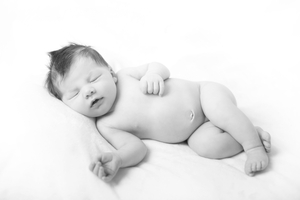After Delivery
After delivering your baby, you will continue to be watched and get pain relief, if needed.
You and your baby usually stay at the hospital for a couple of days to recover.
The Golden Hour
The Golden Hour is commonly known as the period of time after you give birth to your baby. After you deliver, your baby will immediately be placed on your chest for skin-to-skin contact.
 Skin-to-skin contact will help with the baby’s breathing, body temperature and heart rhythm. It is a special time for bonding and introductions – this is the first time you are meeting your new son or daughter!
Skin-to-skin contact will help with the baby’s breathing, body temperature and heart rhythm. It is a special time for bonding and introductions – this is the first time you are meeting your new son or daughter!
We want you to have a quiet and peaceful moment to bond with your new baby. After this time alone, we welcome you to invite family and friends to meet your new bundle of joy.
During this time, your nurse will monitor you and your baby. If no problems arise, your baby can remain with you.
Moms will see their baby immediately following a Cesarean delivery and may be offered skin-to-skin in the operating room.
During the Golden Hour, you will bond with your baby and breastfeed, while staff will complete a physical assessment of your baby, monitor vital signs and check on you.
Breastfeeding
Breastfeeding is a wonderful way to help your baby transition from womb to world after delivery. This reinforces the bond you will experience between the two of you.
We offer a variety of inpatient and outpatient resources to help set you up for success and provide support thorough your breastfeeding journey.
Inpatient Resources
- In-room breastfeeding assistance available from an International Board Certified Lactation Consultant
- Obstetrical nurses trained to provide breastfeed education and assistance
- Education on how to use a breast pump and how to hand express breastmilk
- Facilitate insurance-provided breast pumps to patients
Outpatient Resources
- In-person, telephone or video chat consults free of cost
- Breastfeeding preparation classes
If it is medically necessary to supplement with formula or if you decide not to breastfeed, we provide education on how to safely and properly prepare formula and feed your baby.
Bath
After bonding with your baby, our staff will weigh and measure your baby and may choose to also give him or her a bath.
Your support person is welcome to do this on their own or help the birthing center staff perform your baby’s first bath.
What does recovering from childbirth involve?
As you recover, the following symptoms are not uncommon in the first few weeks:
- Bloody vaginal discharge that changes to brown, then whitish over the next few weeks after delivery
- A tender vaginal area
- Painful contractions that may continue after delivery. These happen as the uterus returns to its original size.
- Breast engorgement as you begin to produce breastmilk
- Fatigue and soreness.
It is generally recommended that you schedule an appointment with your health care provider six weeks after delivery to make sure of proper healing.
The first few weeks as a mother
During the first few weeks, you need to take good care of yourself to rebuild your strength. The following steps can help:
- Take naps when the baby naps, to make up for lost sleep at night from getting up to feed the baby.
- Wear a supportive bra. Cold packs may help relieve breast engorgement and swelling. Warm compresses can be used to help stimulate the letdown of milk. Letdown is a reflex that triggers the release of breastmilk. If you choose not to breastfeed, use ice packs and bind your breasts for several days to help ease engorgement.
- After a Cesarean section, keep the incision clean and dry.
What are the "baby blues"?
It is not uncommon to have the "baby blues" during the first days or weeks after delivery.
The "baby blues" have the following symptoms, although each woman may have slightly different symptoms:
- Feelings of disappointment
- Crying with no known reason
It is common for these "baby blues" feelings to go away soon after they start and usually without treatment.
These symptoms may also be present in postpartum depression. Postpartum depression is a more severe form of baby blues.
Women with postpartum depression may have trouble coping with their daily tasks.
